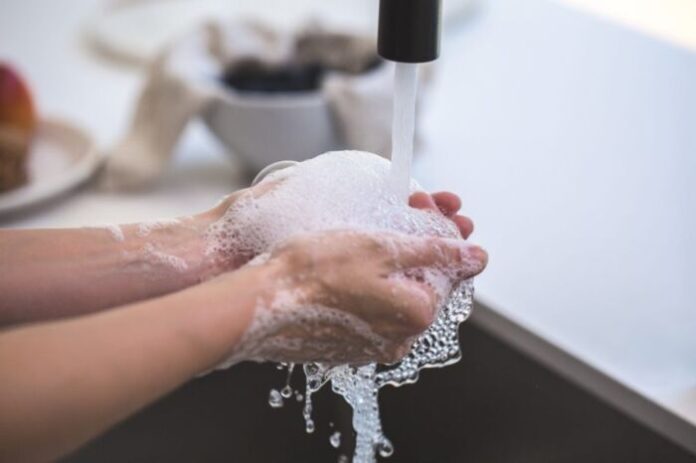
There are no specific therapies and no vaccines against the new coronavirus that arrives from China. To prevent its spread, the WHO recommends washing your hands well: a simple and inexpensive gesture that, to be effective, must last from 40 to 60 seconds.
The hands are a receptacle for germs; about 20% is represented by non-pathogenic microorganisms, which normally reside on the skin without creating damage. However, these can be joined by viruses and bacteria that circulate in the air or with which we come into contact by touching the most diverse surfaces. When they find an ideal environment, the germs lurk there and, if the environmental conditions allow, they proliferate multiplying at an impressive rate.
They can survive for hours on surfaces: toys, telephones, handles, tables, computer keyboards, towels or other objects and from here they can be transmitted to the nose, mouth or eyes, simply through our hands.
The pathogenic germs that lurk on our skin can be responsible for many diseases, from the most frequent and less serious ones, such as flu and colds, to the most severe ones such as typhoid, hepatitis A, cholera, toxoplasmosis.
HOW TO WASH HANDS – Hand washing is intended to remove pathogenic germs present on the skin, through mechanical action. But it is not enough to open the tap and pass your hands under the jet of water to eliminate the problem. Here are some simple rules for effective and hygienic hand washing, suggested directly by the WHO and the Ministry of Health.
- Use soap (preferably liquid soap) and running water, preferably warm. Liquid soap is not exposed to air and therefore does not allow germs to proliferate, as can happen on the soap surface
- Apply soap on both palms and rub on the back, between the fingers and in the space underneath the nails (where germs nest more easily), for at least 40-60 seconds
- Rinse thoroughly with running water
- Dry your hands if possible with disposable paper or with a clean personal towel or hot air device
- Do not touch taps or handles with freshly washed hands. To close the tap use a clean towel, preferably disposable.
- If necessary, apply a moisturizing cream or lotion to prevent irritation, in case of too aggressive detergents or after prolonged washing.
To remove germs from the hands, ordinary soap is sufficient, but, in the absence of water, you can use the so-called hand sanitizers, based on alcohol. There are also detergents with bactericidal action on the market. In both cases, it is better not to abuse these products, because they could irritate the skin and increase bacterial resistance to infections.
WHEN TO WASH HANDS – Washing your hands frequently is important, especially when you spend a lot of time away from home, in public places, often unhygienic. Some situations require special attention, for example:
BEFORE:
- eating
- handle or consume food
- give drugs
- medicate or touch a wound
- apply or remove contact lenses
AFTER:
- having coughed, sneezed or blown your nose
- having been in close contact with sick people
- having been in contact with animals
- having used the bathroom
- having changed a diaper
- having touched raw food, especially meat, fish, poultry and eggs
- having handled rubbish
- using a payphone, handling money etc.
- have used a means of transport (bus, taxi, car etc.)
- having stayed in very crowded places, such as gyms, railways, airports, cinemas etc.






































